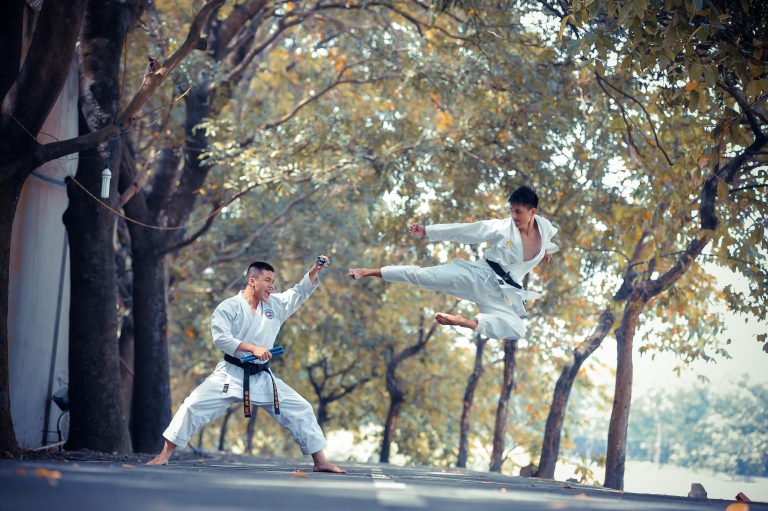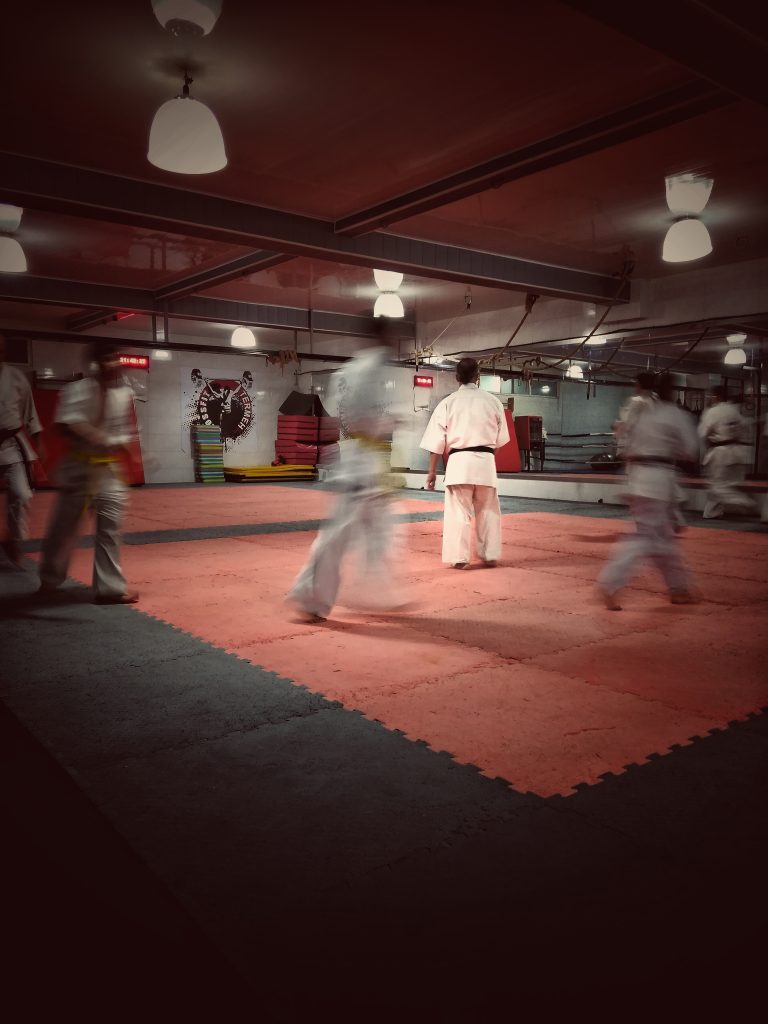Does Karate Help Improve Self-defense Skills?
When it comes to martial arts, karate is one of the most popular ones, especially when it comes to learning how to defend yourself. Ever since its creation in Okinawa, Japan, more and more people around the world have been practicing it. But is karate really effective when it comes to self-defense? In this blog post, we’ll take a look at the answer.
What is Karate?
Karate is a martial art that originated in Okinawa, Japan. It is a system of self-defense that relies on strikes, kicks, and blocks with the hands, feet, and elbows. It uses a wide range of body motions along with some traditional weapons, such as the sai, nunchaku, and bo. In terms of its physical form, it involves a lot of repetition and training of various forms and drills, or Kihon.
The Benefits of Karate
Karate is an effective and useful form of self-defense. In addition to gaining self-confidence and learning how to protect yourself and others, there are several other benefits to training in karate:
- Improve physical fitness – Regular karate training leads to increased strength, endurance, and coordination.
- Boost mental focus – Karate requires both physical and mental focus, which improves concentration.
- Teach discipline – Karate reinforces the need for discipline and respect for others.
- Improve self-esteem and confidence – Regular practice leads to improved self-efficacy, self-worth, and confidence.
- Develop self-defense skills – Trained karate is an effective form of self-defense.
How Does Karate Help with Self-defense?
Karate is an effective and practical form of self-defense because it combines techniques derived from martial arts. Karate focuses on techniques such as blocking and evading punches, kicks, grapples and locks. Its focus for self-defense is to quickly attack or restrain an assailant in order to prevent injury or escape. Karate instructors teach a range of techniques to help their students develop skills such as physical fitness, coordination, strength, balance, concentration, and confidence. As a result of proper training and instruction, a person’s skill in self-defense increases drastically from his or her expertise in karate.
In addition, certain characteristics of karate can potentially help increase the chances for successfully executing self-defense moves. These include:
- Speed – The technique involves speed during execution to deflect attacks before they land.
- Flexibility – Karate teaches flexibility of body and mind, allowing students to use their current stance more effectively.
- Timing – Proper timing is essential when using any technique to take advantage of an opponent’s openings.
- Distance – Training in karate will help students learn how to move away from danger while remaining ready to counterattack.
What Are the Limitations of Karate as a Self-Defense Tool?
Although karate is highly effective for self-defense purposes, its use is limited by certain factors:
- Size – Being bigger than the opponent may make it difficult for the user to utilize certain moves.
- Strength – Being physically weaker may limit the user’s ability to defend against a larger assailant.
- Age – As a person gets older, their physical ability may be reduced.
Additionally, karate alone may not be enough to ensure safety against an attacker who is armed with a weapon or who has other forms of physical defenses in their favor. It is thus important for people who choose to use karate as a means of defense to also be well aware of their environment and any potential dangers that may arise.
Conclusion
In conclusion, karate can be a very effective tool for self-defense. With its training system that combines physical and mental training, karate can increase your physical fitness, boost mental focus and confidence, teach you discipline, and even help you develop your self-defense skills in order to be better prepared against any would-be assailants. However, it may be limited by certain factors such as size or age, and cannot always guarantee safety on its own. Therefore, it is important that those who choose to use karate for self-defense remain aware of their surroundings for anyone seeking immediate help in emergency situations.
Does Karate Help Improve Self-Defense Skills?
Karate is known to be one of the most popular martial arts techniques. People practice karate for various reasons, such as fitness, self-discipline, and self-defense. However, the question remains whether karate can help improve self-defense skills. In this article, we will answer some of the most frequently asked questions about karate and self-defense.
What is Karate?
Karate is a Japanese martial art that involves using your hands and feet for strikes, kicks, and punches to disable an opponent. It combines self-defense techniques with fitness routines, meditation, and self-discipline. Karate was introduced in the early 20th century and has since been recognized as one of the most effective martial arts styles in the world.
Can Karate Help with Self-Defense?
Yes, karate can help improve self-defense skills. Karate focuses on building strength, speed, flexibility, and endurance, which are critical for self-defense. It also teaches techniques that can be used to defend oneself in real-life situations. The basic principles of karate involve using your body weight, strength, and momentum to generate power and deliver effective strikes.
What Self-Defense Techniques are Taught in Karate?
Karate teaches techniques such as punches, kicks, blocks, and strikes to disable an attacker. These techniques involve using various parts of the body, such as fists, elbows, knees, and shins. Karate also teaches grappling techniques, which involve immobilizing an attacker and gaining control over them without causing permanent harm.
Is Karate Effective for Women?
Yes, karate can be highly effective for women in terms of self-defense. Women are often smaller and weaker than their male counterparts, which makes them more vulnerable to attacks. Karate teaches women how to use their bodies effectively and efficiently to deter or disable an attacker. It also helps build self-confidence and self-esteem, which are critical for self-defense.
How Long Does it take to Learn Self-Defense in Karate?
The time required to learn self-defense in karate varies from person to person. It depends on several factors, such as the individual’s natural ability, physical fitness, and dedication to the practice. However, with regular practice, an individual can start to see significant improvements in their self-defense skills within a few months.
Do You Need to Be Fit to Practice Karate?
No, you do not need to be fit to practice karate. Karate is designed to be inclusive of people of all fitness levels. However, practicing karate can help improve your fitness and overall health. The physical aspects of karate, such as kicks, punches, and strikes, require significant exertion, which leads to an increase in strength, agility, and endurance.
Is Karate Safe for Kids?
Yes, karate is safe and beneficial for kids aged 6 years or older. Karate teaches children the importance of self-discipline, respect for oneself and others, and leadership skills. It also helps build self-confidence and self-esteem in children, making them more assertive and capable of standing up to bullies. The physical aspect of karate helps children stay active and healthy.
Conclusion
In conclusion, karate is an excellent martial art for improving self-defense skills. Karate teaches various techniques that can be used to defend oneself in real-life situations. It also helps build confidence, self-esteem, and fitness levels. Anyone, regardless of age or fitness level, can benefit from practicing karate.
Inhaltsverzeichnis






